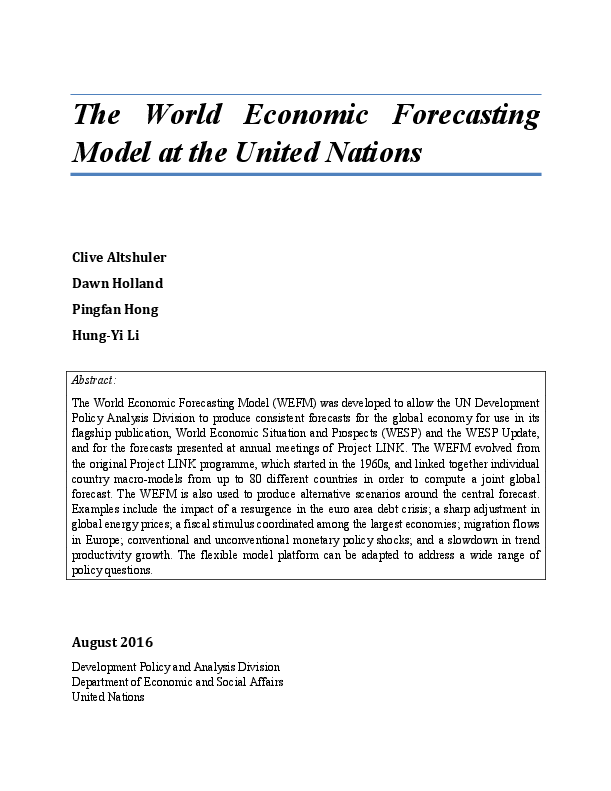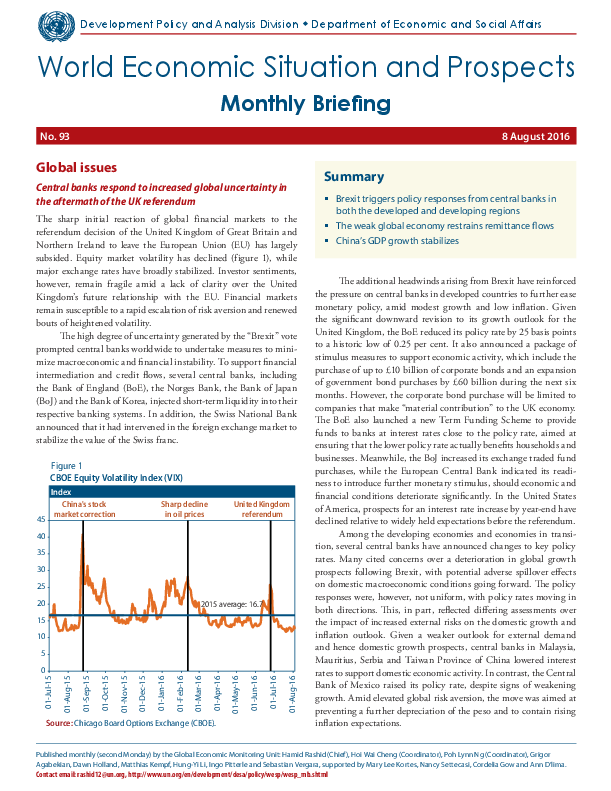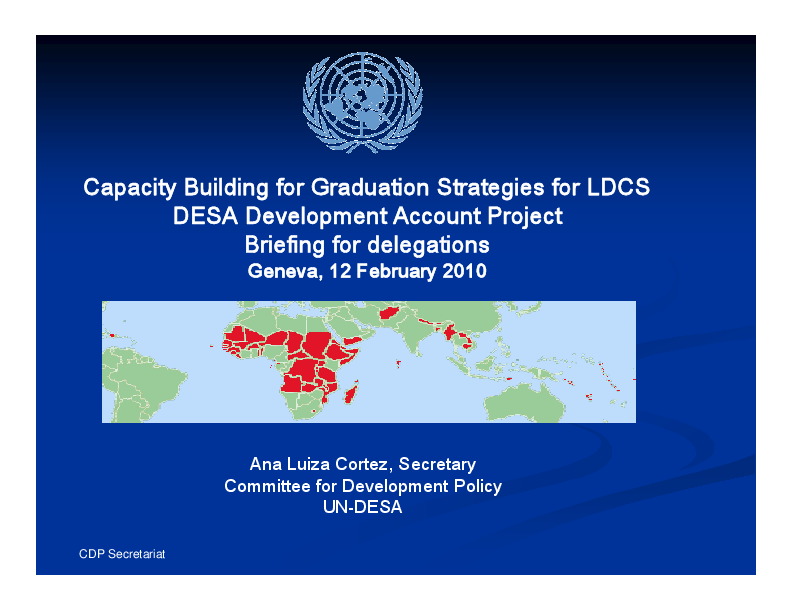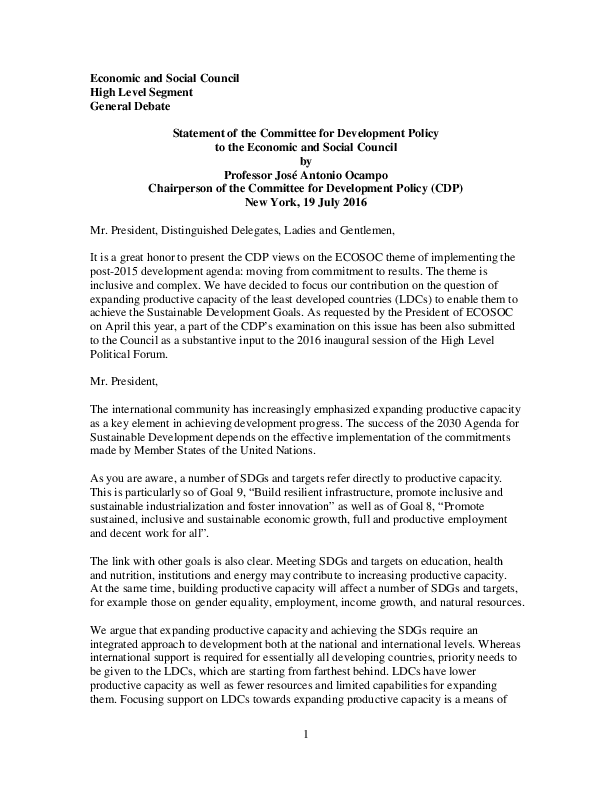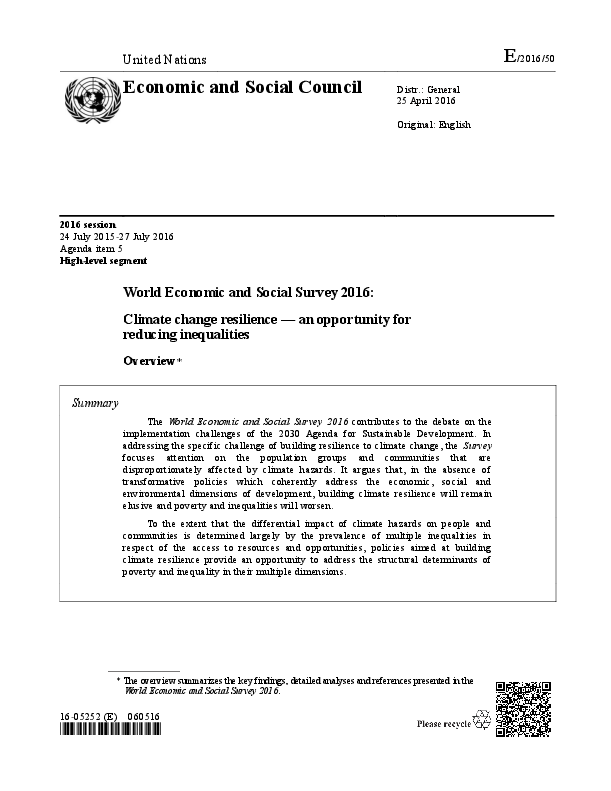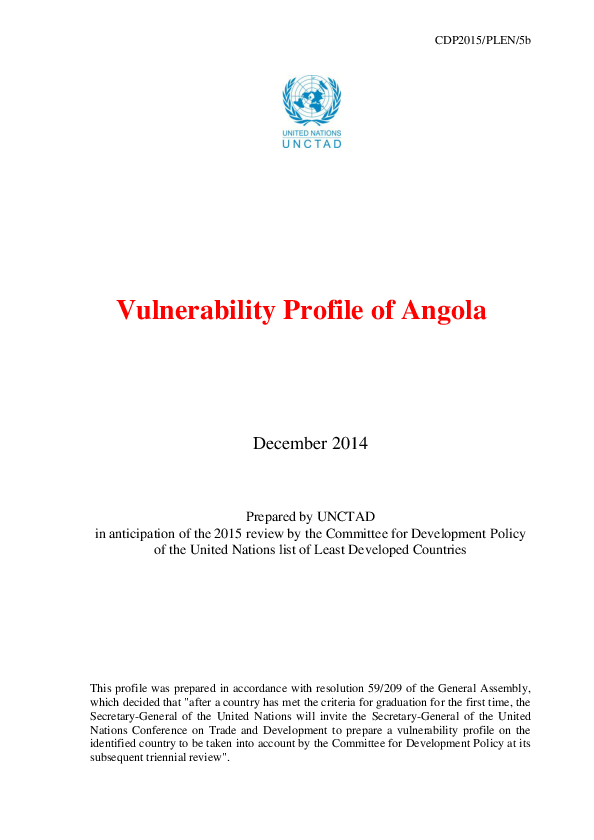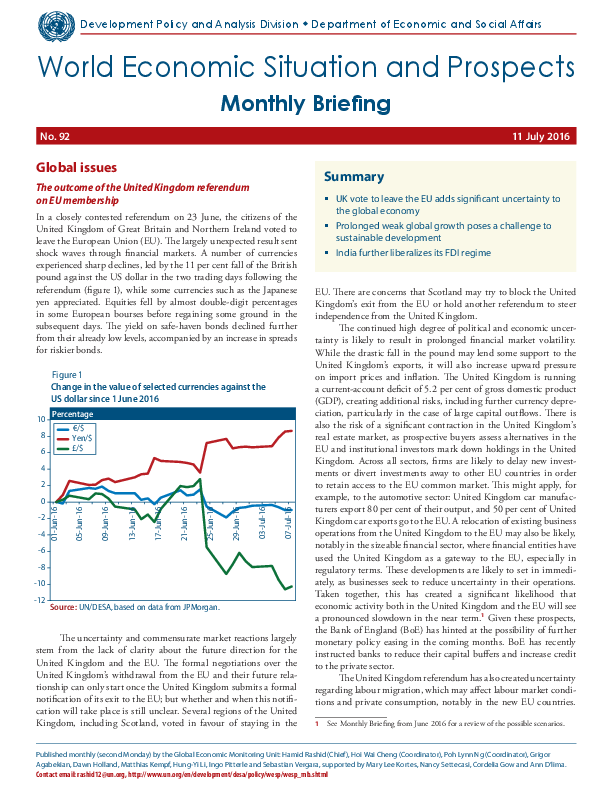Publications
Displaying 481 - 490 of 1086
https://www.youtube.com/watch?v=aCturRfsadM Statement at the High Level Segment of 2016 ECOSOC session
عربي, 中文, English,?Français, Русский, Español 2016 Report of the Secretary-General to the General Assembly
 Welcome to the United Nations
Welcome to the United Nations

